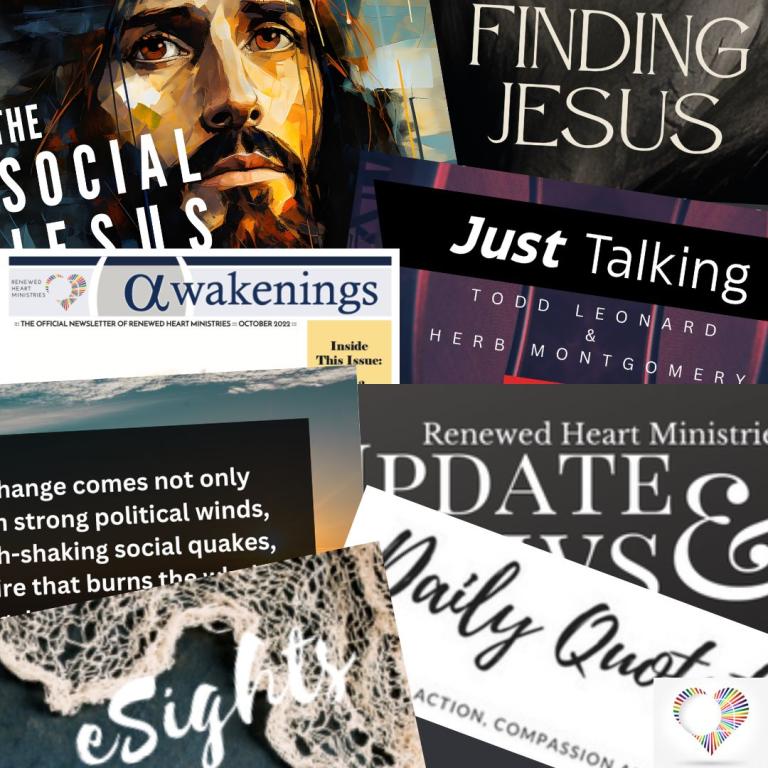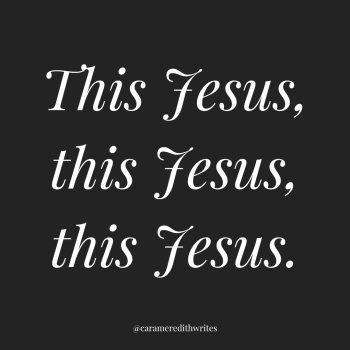
Let’s wrap up our consideration of embracing our dependency.
Welcome Readers! Please subscribe to Social Jesus Here.
(Read this series from the beginning at Part 1 and Part 2.)
Jesus’ instruction to the twelve in our reading this week points us toward community rather than individualism. Consider this commentary by James Robinson:
[Jesus’s] basic issue, still basic today, is that most people have solved the human dilemma for themselves at the expense of everyone else, putting them down so as to stay afloat themselves. This vicious, antisocial way of coping with the necessities of life only escalates the dilemma for the rest of society . . . I am hungry because you hoard food. You are cold because I hoard clothing. Our dilemma is that we all hoard supplies in our backpacks and put our trust in our wallets! Such “security” should be replaced by God reigning, which means both what I trust God to do (to activate you to share food with me) and what I hear God telling me to do (to share clothes with you). We should not carry money while bypassing the poor or wear a backpack with extra clothes and food while ignoring the cold and hungry lying in the gutter. This is why the beggars, the hungry, the depressed are fortunate: God, that is, those in whom God rules, those who hearken to God, will care for them. The needy are called upon to trust that God’s reigning is there for them (“Theirs is the kingdom of God”) . . . Jesus’ message was simple, for he wanted to cut straight through to the point: trust God to look out for you by providing people who will care for you, and listen to him when he calls on you to provide for them.” (James M. Robinson, The Gospel of Jesus: The Search for the Original Good News, Kindle Location 138)Jesus was shaping a community that was a community of dependence as soon as it arrived on a person’s doorstep. It called a person to embrace taking responsibility for making sure others had what they needed as the first step in embracing that community. It was a test. And if someone was not willing to embrace the ethic of mutual aid and resource-sharing, the disciple was to shake the dust off their feet and move on to find those that would.
I’m reminded of the work of Peter Kropotkin, a Russian activist, writer, revolutionary, and philosopher who lived in the late 19th and early 20th Century. In his book Mutual Aid, he commented on Darwinism’s survival of the fittest with remarks relevant to our our point here:
“While [Darwin] was chiefly using the term [survival of the fittest] in its narrow sense for his own special purpose, he warned his followers against committing the error (which he seems once to have committed himself) of overrating its narrow meaning. In The Descent of Man he gave some powerful pages to illustrate its proper, wide sense. He pointed out how, in numberless animal societies, the struggle between separate individuals for the means of existence disappears, how struggle is replaced by co-operation, and how that substitution results in the development of intellectual and moral faculties which secure to the species the best conditions for survival. He intimated that in such cases the fittest are not the physically strongest, nor the cunningest, but those who learn to combine so as mutually to support each other, strong and weak alike, for the welfare of the community. ‘Those communities,’ he wrote, ‘which included the greatest number of the most sympathetic members would flourish best, and rear the greatest number of offspring’ (2nd ed., p. 163).
Lastly this week’s reading says the twelve went out and preached that people should repent. It helps me to remember that Christianity didn’t exist yet so this is not a call to join a group. Rather, this call to repent should be understood in the communal context that Hebrew prophets would have used rather then the individualistic way many sectors of Christianity later interpreted it.
The Hebrew prophets called for societies and communities to experience group repentance to stop social injustices (Isaiah 59:20; Jeremiah 5:3, 8:6, 15:19; Ezekiel 14:6, 18:30-32; Hosea 11:5). They called communities to consider how they were relating to the most vulnerable among them and to rethink how their society was shaped. They called them to repent by embracing justice and making sure everyone in their society was cared for.
This calls me this week to reassess my own understanding of Jesus-following. Is my Christianity all about getting to heaven and saving my own individual soul? Or does following Jesus call me at the very first to be concerned with someone’s present material need? Are there any in my community that have “no bread, no bag, no money, no clothing”? And if so, how does following Jesus inspire me not just to act through charity, but to also make sure everyone has enough to thrive and charity becomes obsolete? The very first test for someone who encountered one of these twelve was not how they responded to a gospel presentation on Jesus’ death, heaven or hell, or whatever gospel topic is too often the soundbite version of sharing Christianity today. The very first test was how would this person respond to someone on their door step with no bread, no money, and no extra clothing.
There’s a lot here to consider.
Are you receiving all of RHM’s free resources each week?
Begin each day being inspired toward love, compassion, justice and action. Free.
Sign up at:
https://renewedheartministries.com/Contact-forms/?form=EmailSignUp














